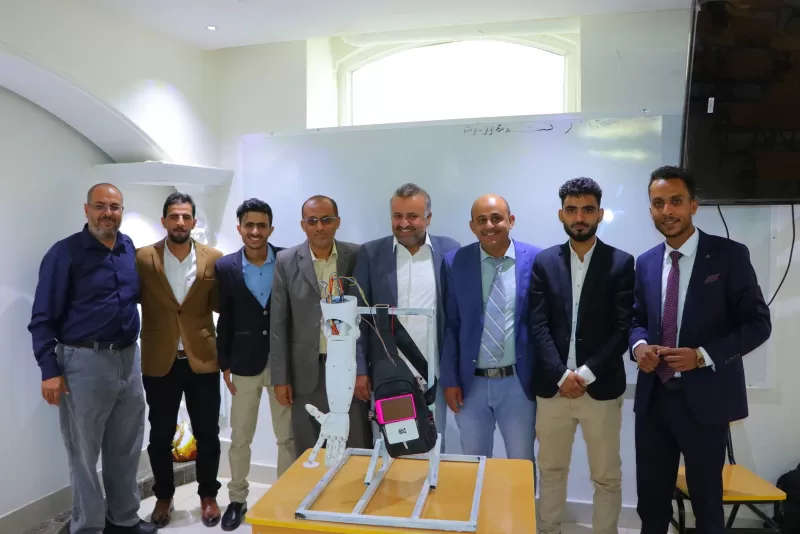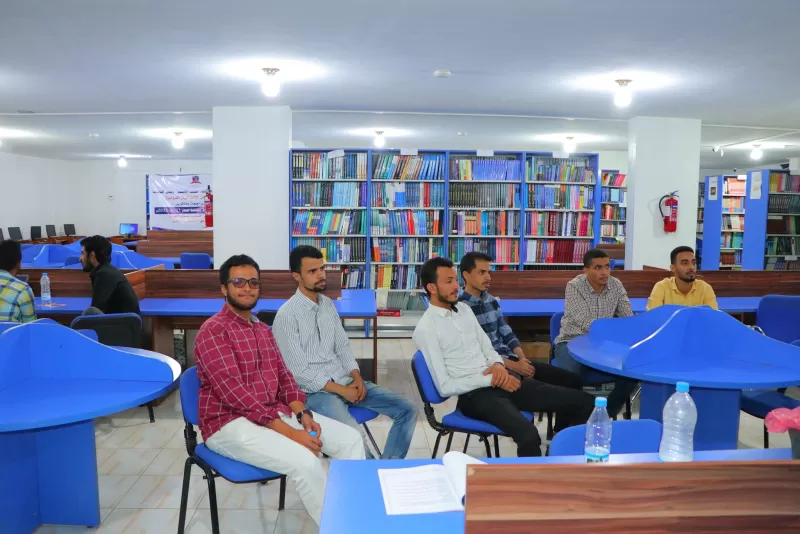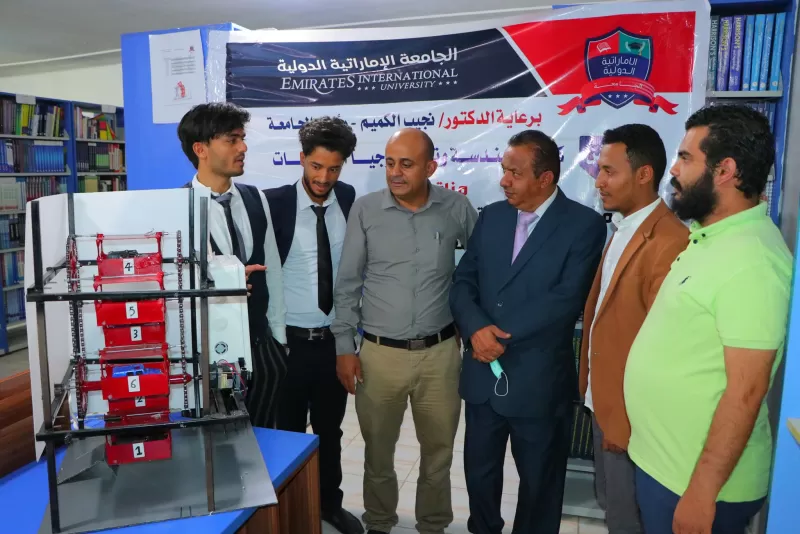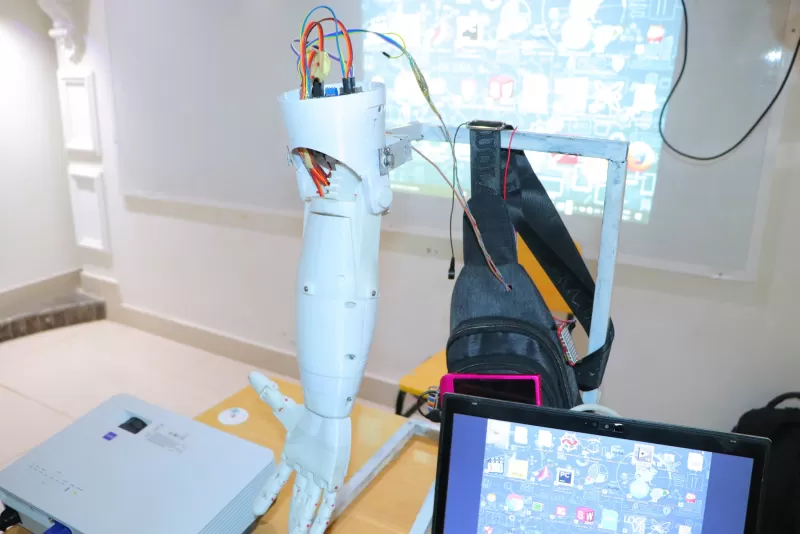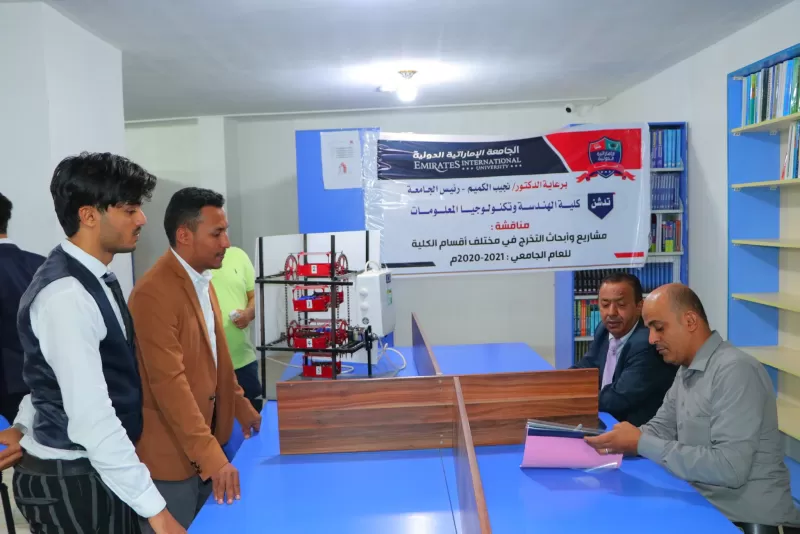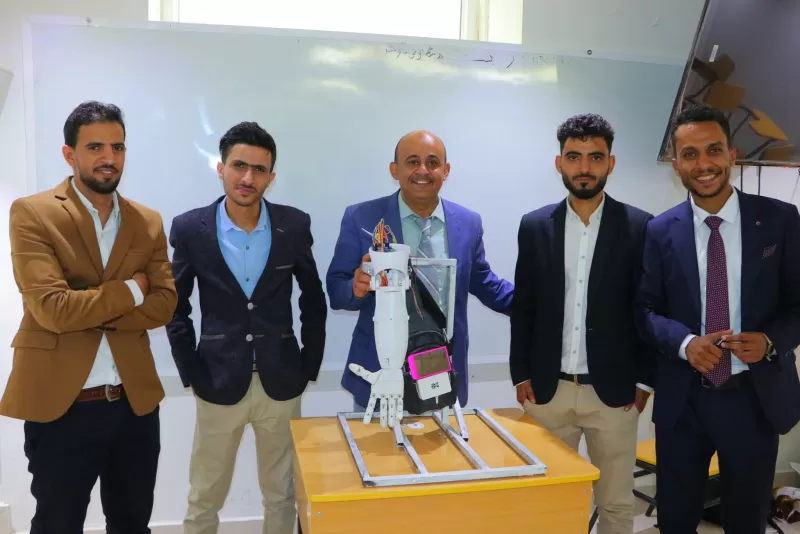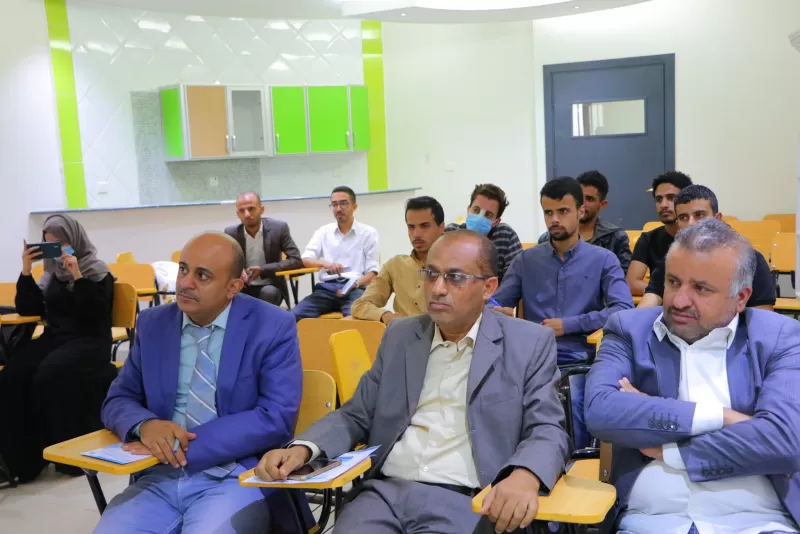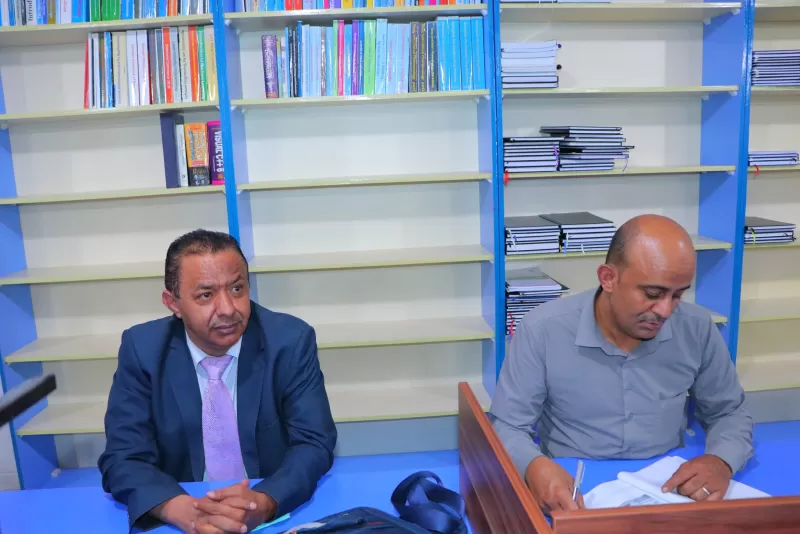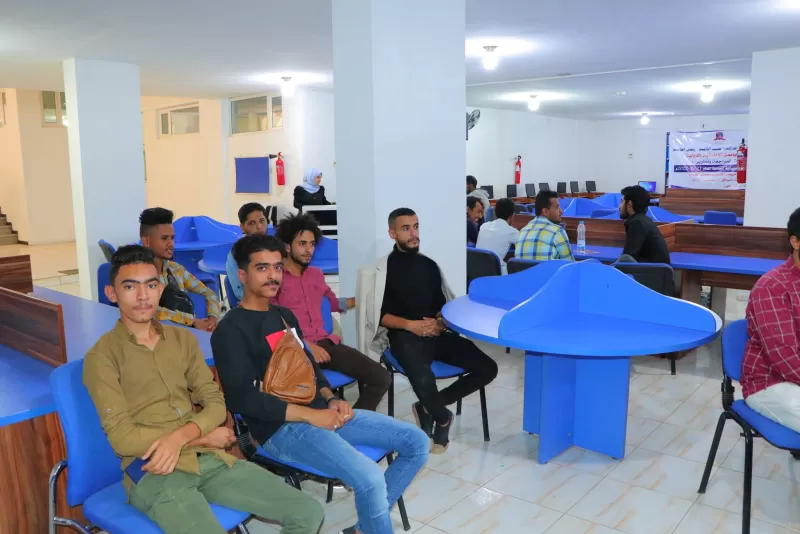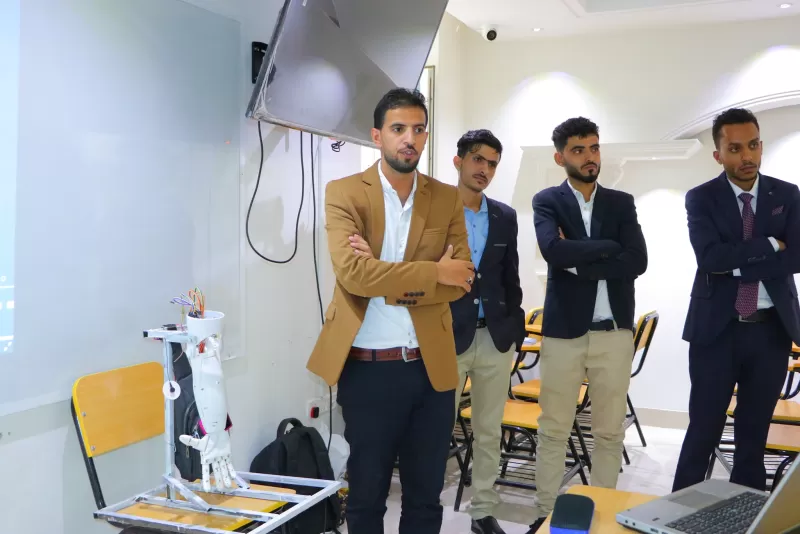Emirates International University
Modernity
Distinguish
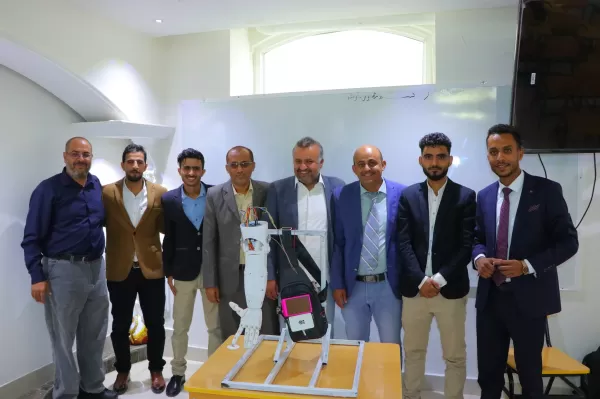
University media
The College of Engineering and Information Technology at the university continues to discuss a number of student graduation projects from the Mechatronics Engineering Department, in the presence of the Dean of the College and Head of the Mechatronics Department, Dr. Hatem Al-Dais. Where graduation projects submitted by students of mechatronics engineering were discussed as follows: Project entitled: Design and implementation of prosthetic arm based on machine learning algorithm for EMG Signals Presented by the students: Hussam Al-Din Hassan Al-Sabri, Zakaria Fouad Al-Shami, Abdul Hamid Muhammad Al-Rada’i and Muhib Fouad Al-Zegrouri. Under the supervision of A.M.D. Farouk Al-Fahidi, Professor of Computer, Control and Communications Engineering, College of Engineering, Ibb University, and Eng. Riman Al-Sharjabi. The discussion committee for the project was formed from:- Prof. Radwan Al-Budaji, Professor of Power, Networks and Renewable Energy Engineering, Faculty of Engineering, Sana’a University Dr.. Mohammed Abdullah Al-Alfi .. Assistant Professor of Biomedical Engineering and Head of the Department of Medical Equipment Engineering, College of Engineering, UAE University. The project is the design and implementation of an intelligent prosthetic arm for the missing arm and supports modularity design so that it can be used to replace a full arm of the muscle or half of the arm or the palm only. Design aspect: The mechanical arm model was designed by students using computer programs to assist in the design and manufacture it using a 3D printer, and then add the electronic and electrical elements needed to operate the arm and use a microcontroller (Raspberry pi 4 model B). The programmer is smart programming to read the muscle signals using medical electrodes and then process the signal and diagnose the type of movement required from the seven different movements made by the arm so that the movement is implemented by the palm. software side The students implemented an intelligent machine learning algorithm using a database of 300,000 readings of the seven movements from multiple people with 12 features. Where the students first performed additional processing on the database in order to extract a smaller and optimal number of readings and influential features by means of the Matlab program, and the processing came out with a number of 2810 readings and 7 influential features. The students then trained the smart algorithm with 70% of the total database readings, and then the examination process with the remaining 30%, using five different diagnostic methods, where the accuracy rate reached 99% for the smart algorithm with a noticeable improvement over the use of the total database in which it was arriving Accuracy to 90%. Third side: Deploy the algorithm on the microcontroller (Raspberry pi 4 model B) And use it to diagnose the read signal and then control the movement of the palm. The practical results showed the success of the proposed model by trying it on many people. The smart prosthetic limb project is a purely humanitarian project that compensates for the hand-limb people with a smart limb capable of alleviating their suffering. The RPCS project "Rotating Car Parking Project" was also discussed. The project consists of six car parks arranged in a circular motion so that the project area does not exceed the area of two car parks on the ground. It is designed with a control unit to call the parking lot in which the car is to be entered by pressing the parking number, and the project will know the full and empty parking spaces and show them to the user on the screen. The project was presented by the students: Shaheen Saleh Al-Mallahi, Hisham Al-Saqqaf, Ahmed Jamal, Madin Al-Shawafi, Majd Al-Maamari and Ziad Taha, and it was supervised by Prof. Dr. Ahmed Sultan Al-Hijami, and the discussion was attended by Dr. Farouk Al-Fahidi.

